Peace design projects:
-
Zalmon River_Encounters
A hybrid AI-basd game-app and in-person workshop for shared reflection and imagination
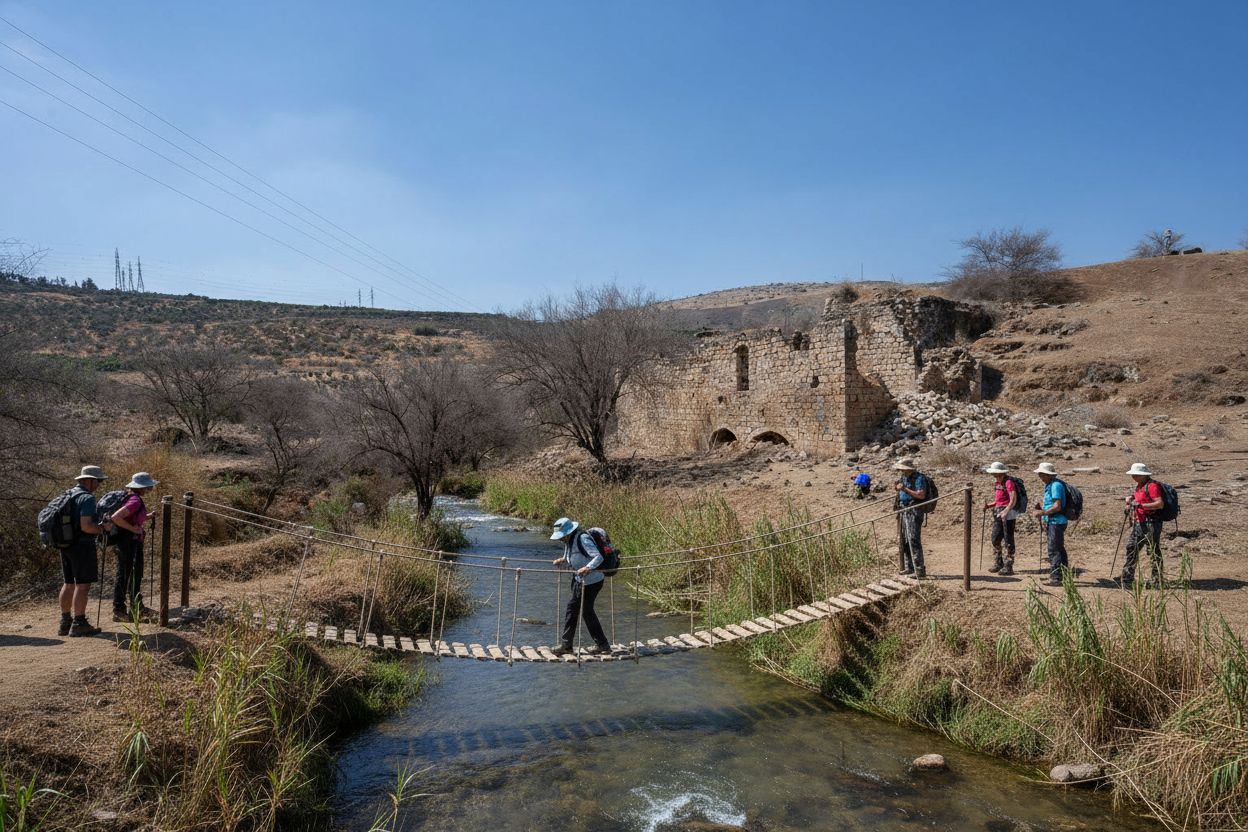
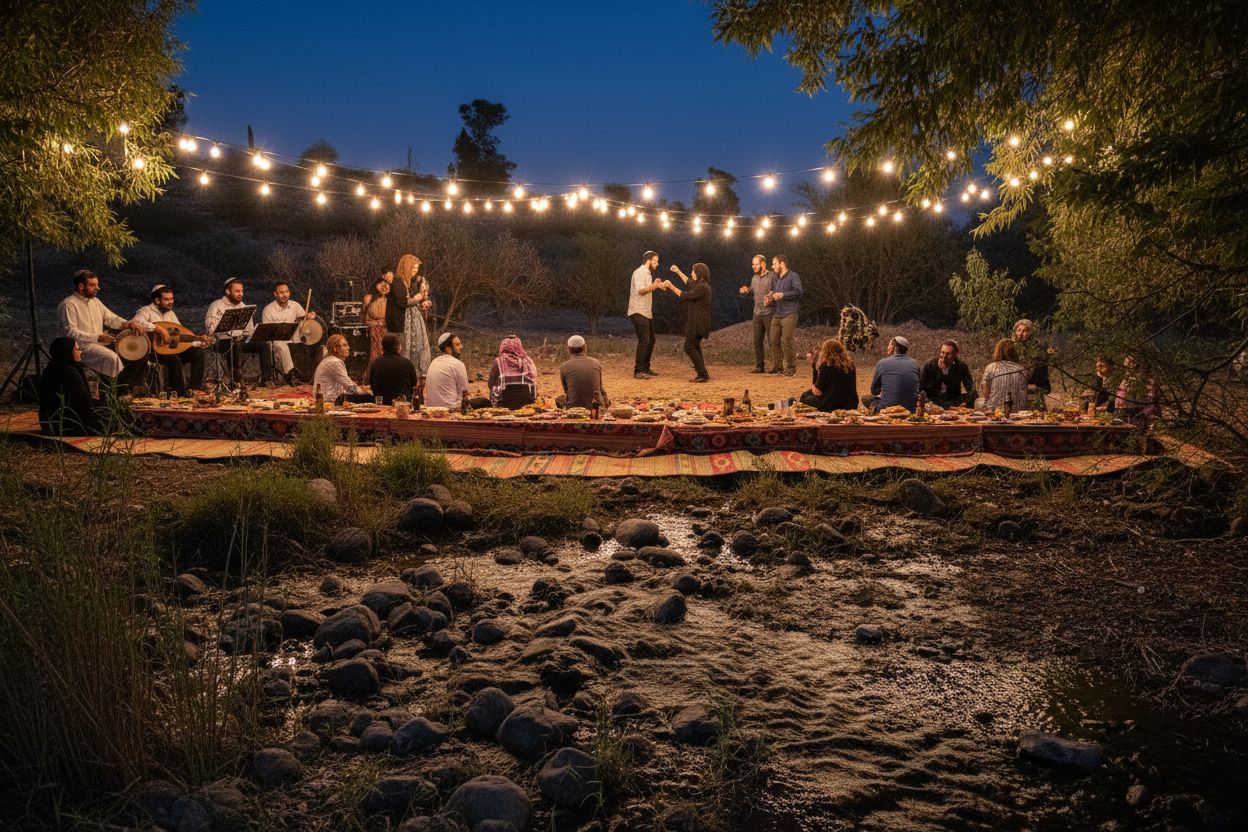
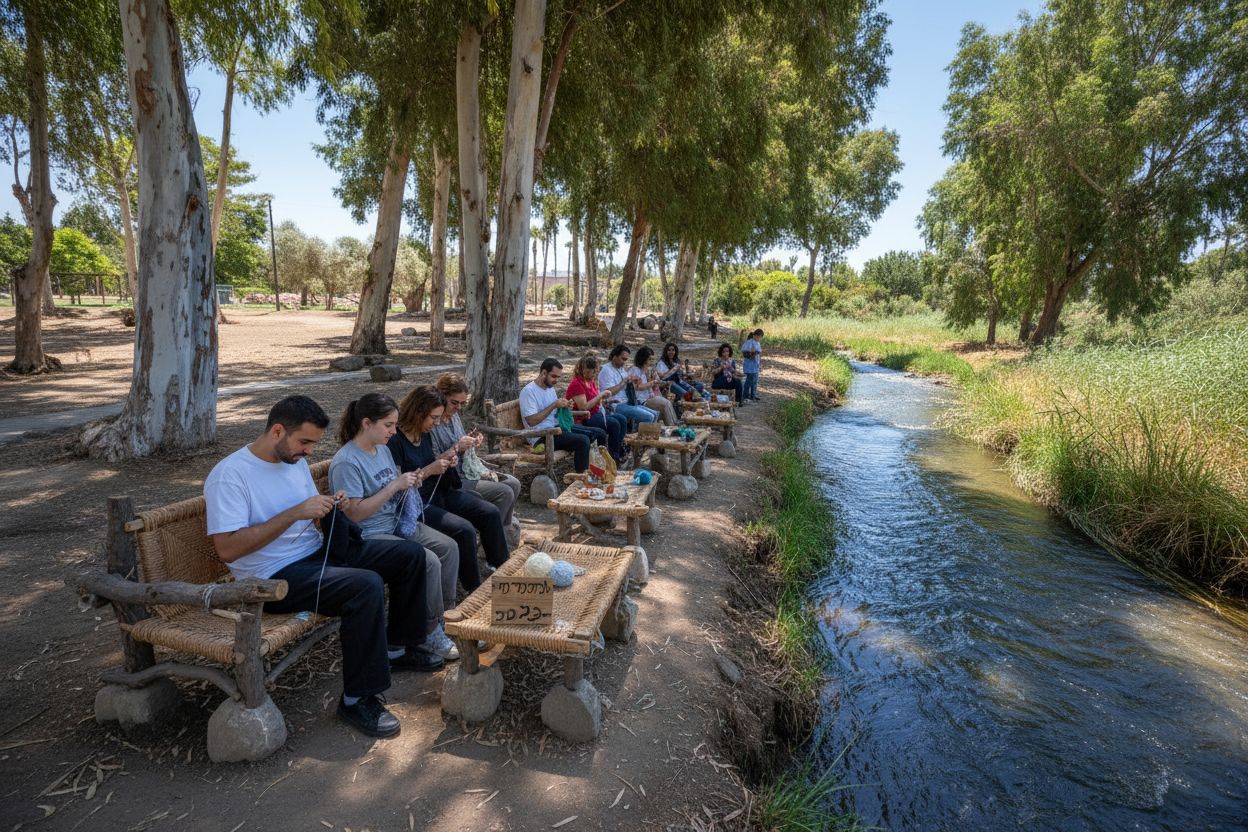
River_Encounters is a specially designed participatory experience for Jewish and Palestinian women from neighboring yet separate communities along the Zalmon River in Israel. The project combines an in-person workshop with an AI-facilitated application that supports collective reflection and imagination. Participants are invited to jointly imagine collaborative futures grounded in a rare and transformative moment in the local landscape: the planned release of clean water into a usually dry wadi.
Building on this unusual environmental shift, the project employs curated river photomontages and a custom-programmed AI tool to simulate images of a flowing river that is largely unfamiliar to both communities. These speculative visuals act as catalysts for collective imagination, enabling participants to envision future scenes of shared activities, encounters, and co-created places along the river - reframing the river as a potential space of connection, collaboration, and coexistence.
River Views
An immersive installation, and group game for individuals from contested regions and guests
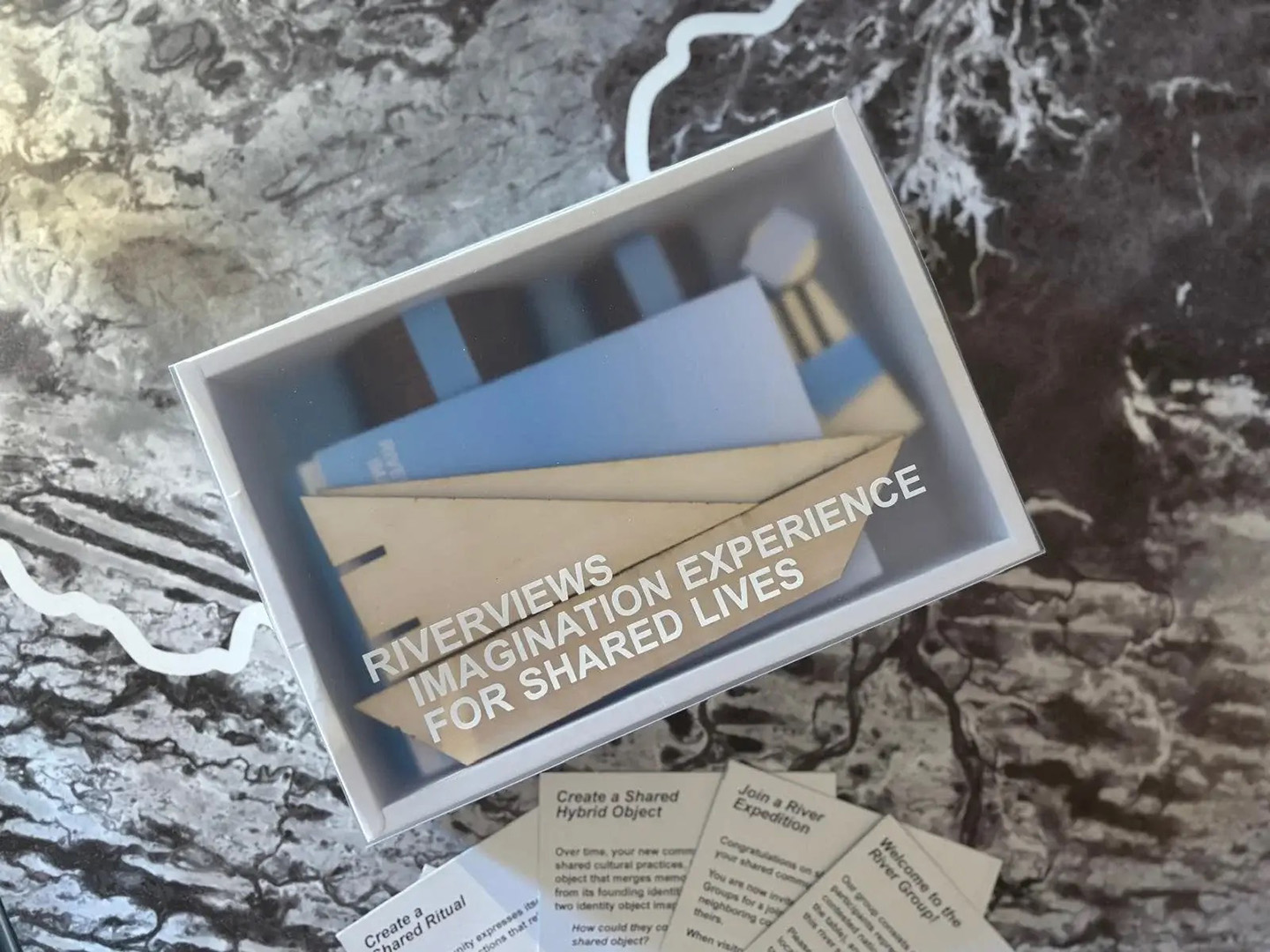
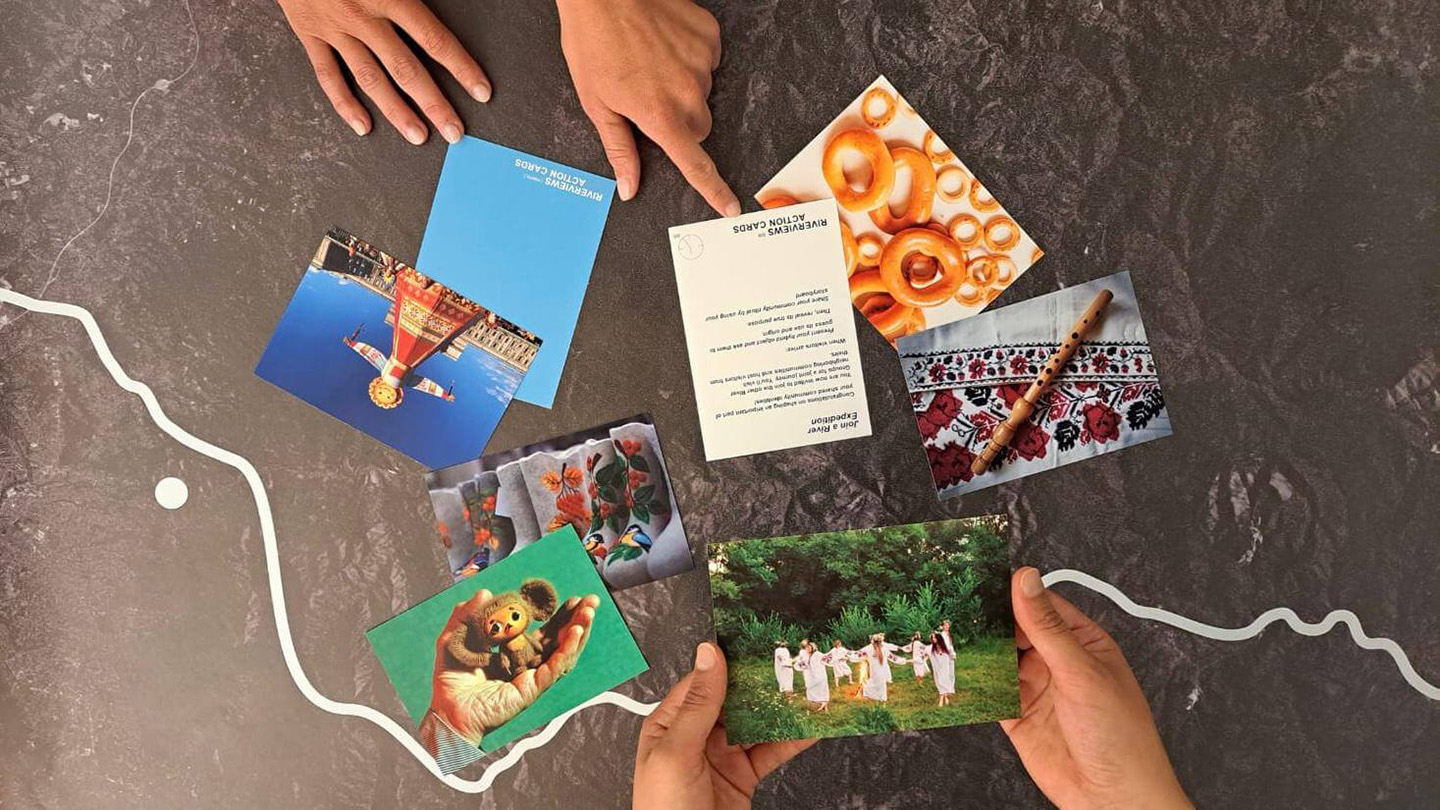
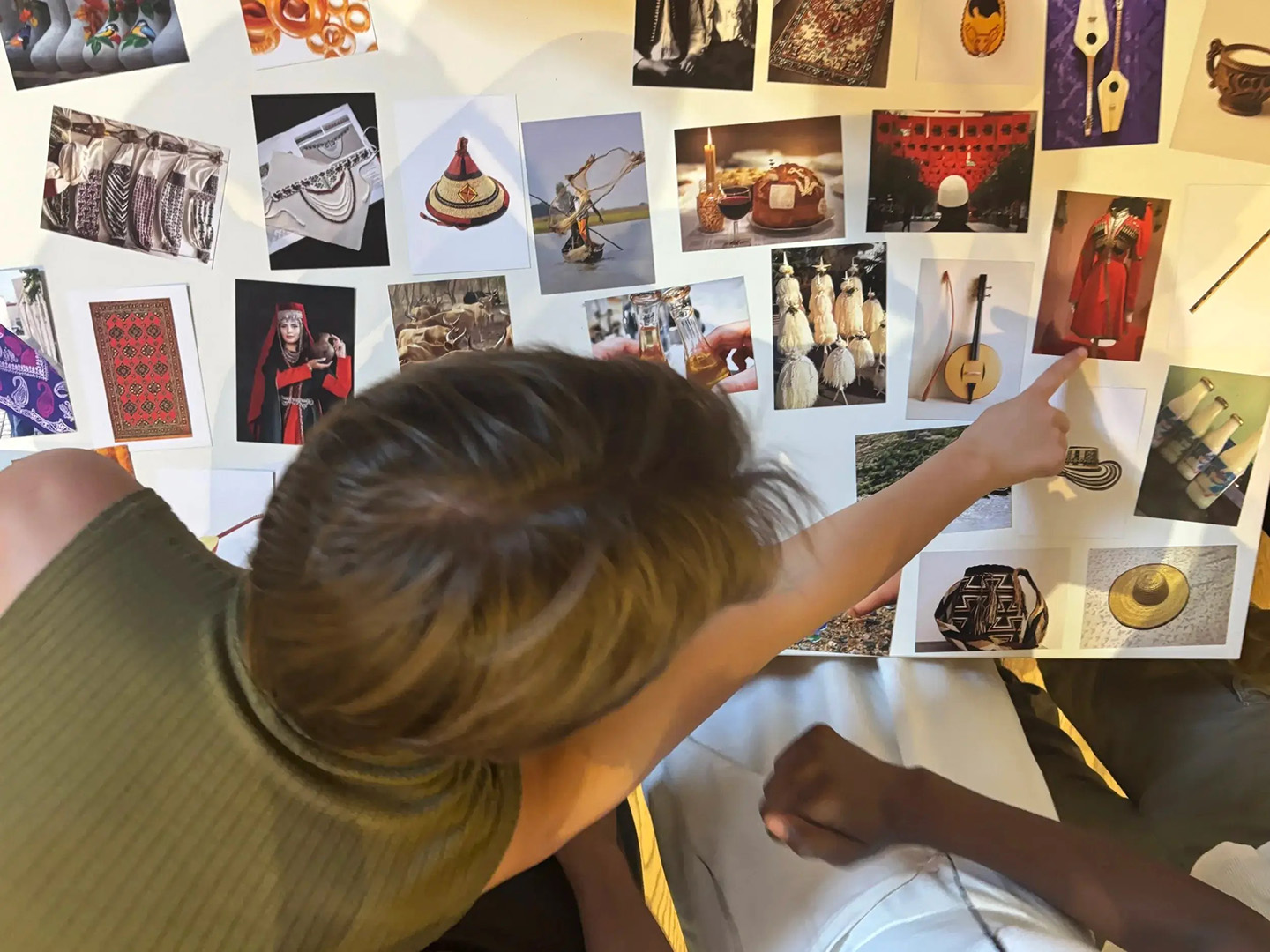
Between any two communities runs a river. It can flow from one community to the other or run between them. It can mark a line of a contemporary conflict or be a memory of a forgotten war in a time of peace. All rivers are ultimately connected: from those in the homelands of Rondine’s students to the Arno, which flows into the Mediterranean and, beyond it, the world’s oceans.
RiverViews is an immersive installation, and group game for individuals from contested regions and their guests. Centered around a large riverboard that merges waterways from each participant’s place of origin, the game invites players to imagine new shared futures through storytelling, creativity, and AI-enhanced tools.
The RiverViews project is a special collaboration for the Youtopic festival (2025) between Rondine’s World House students, young people from countries currently or recently affected by violent conflict, and Connecting Stations.
Distribution station
An empathy training Interactive installation
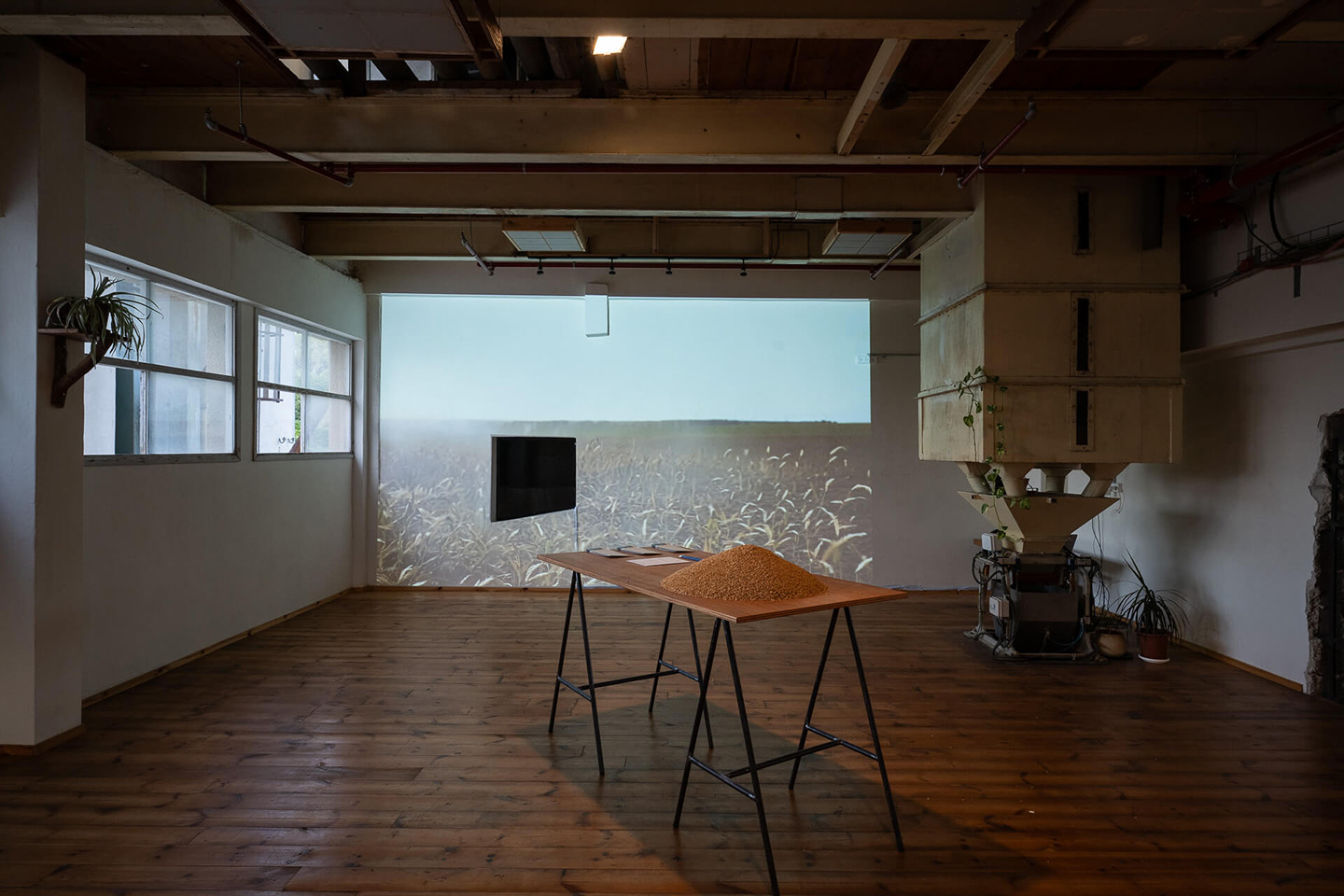
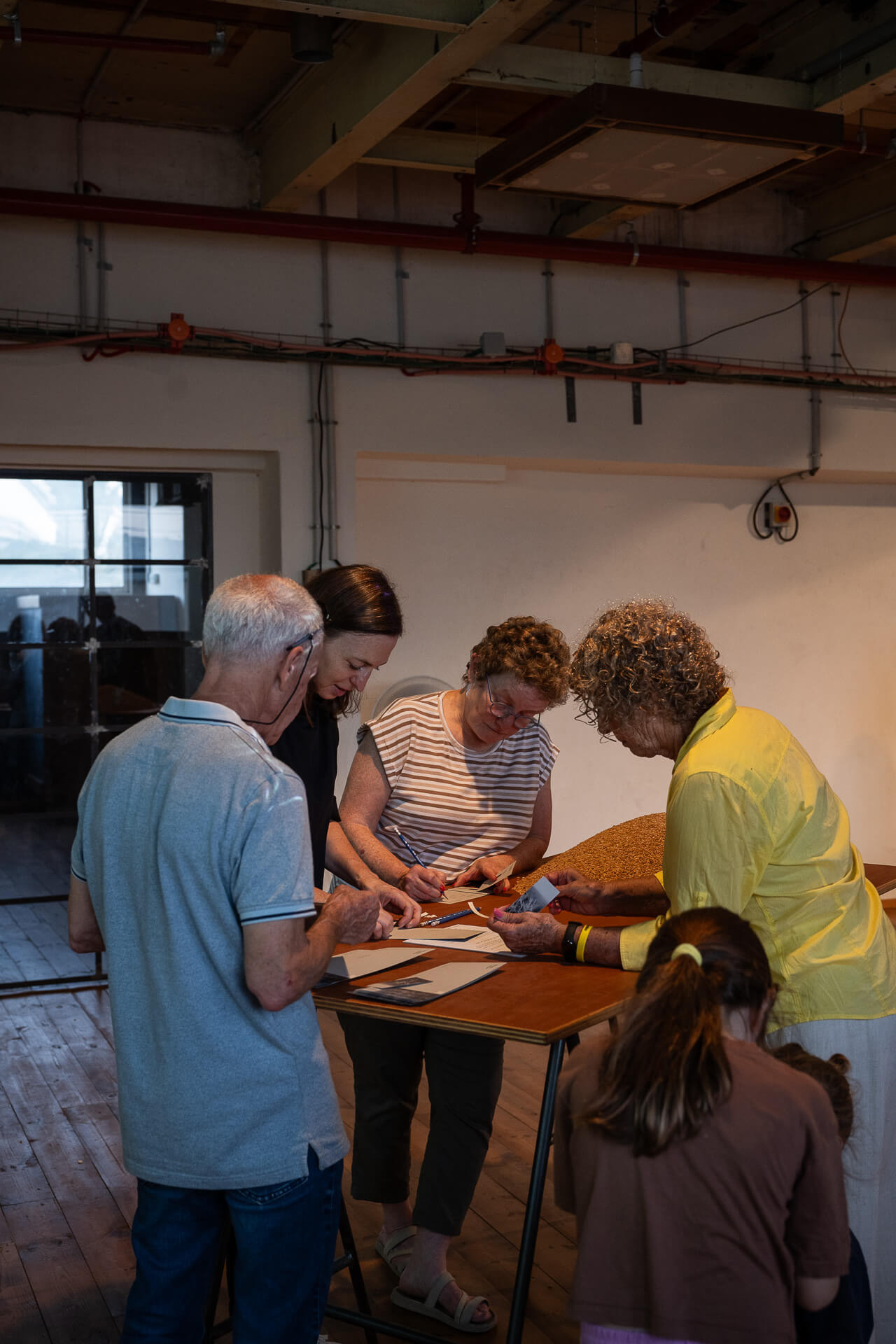
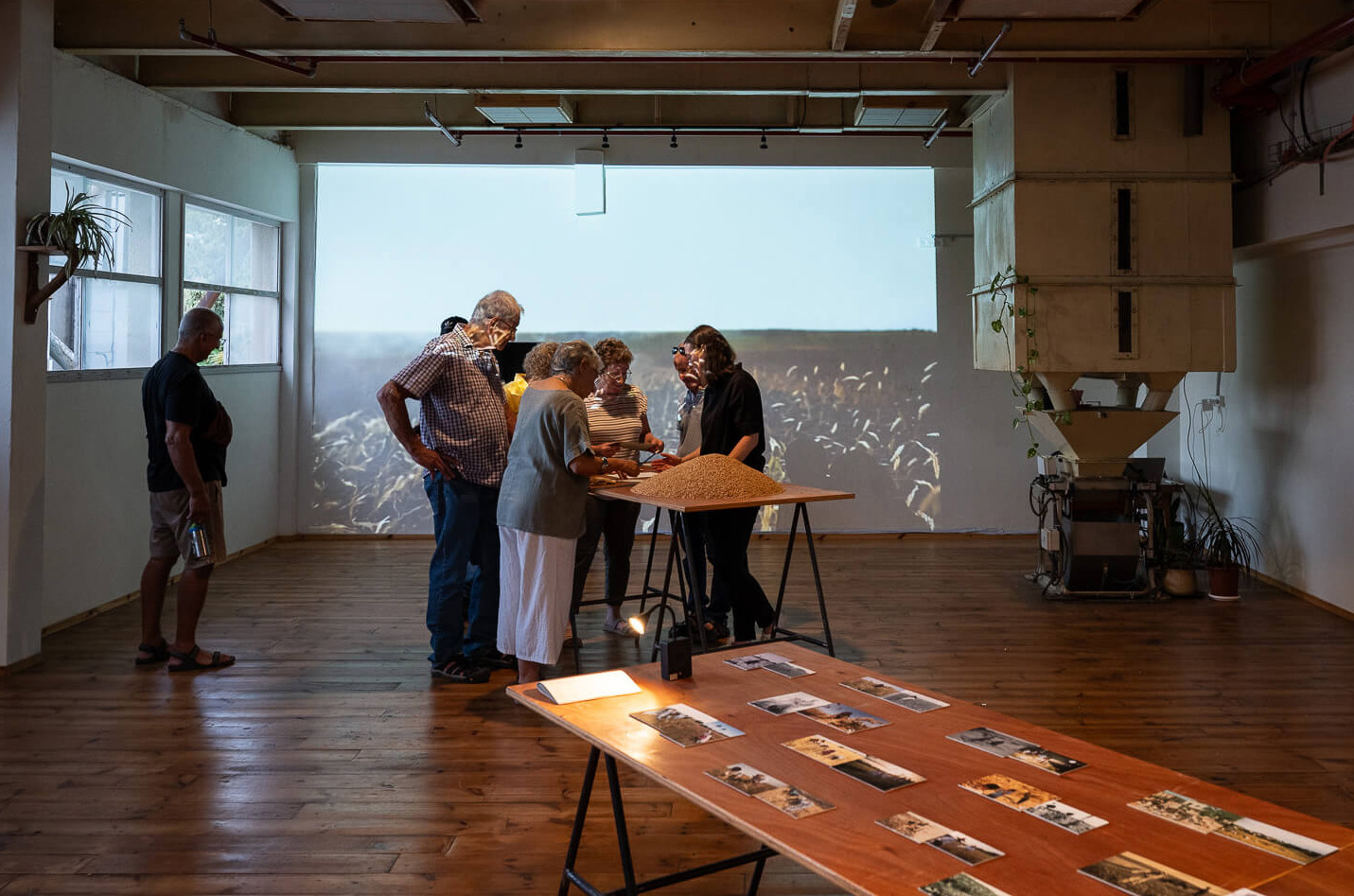
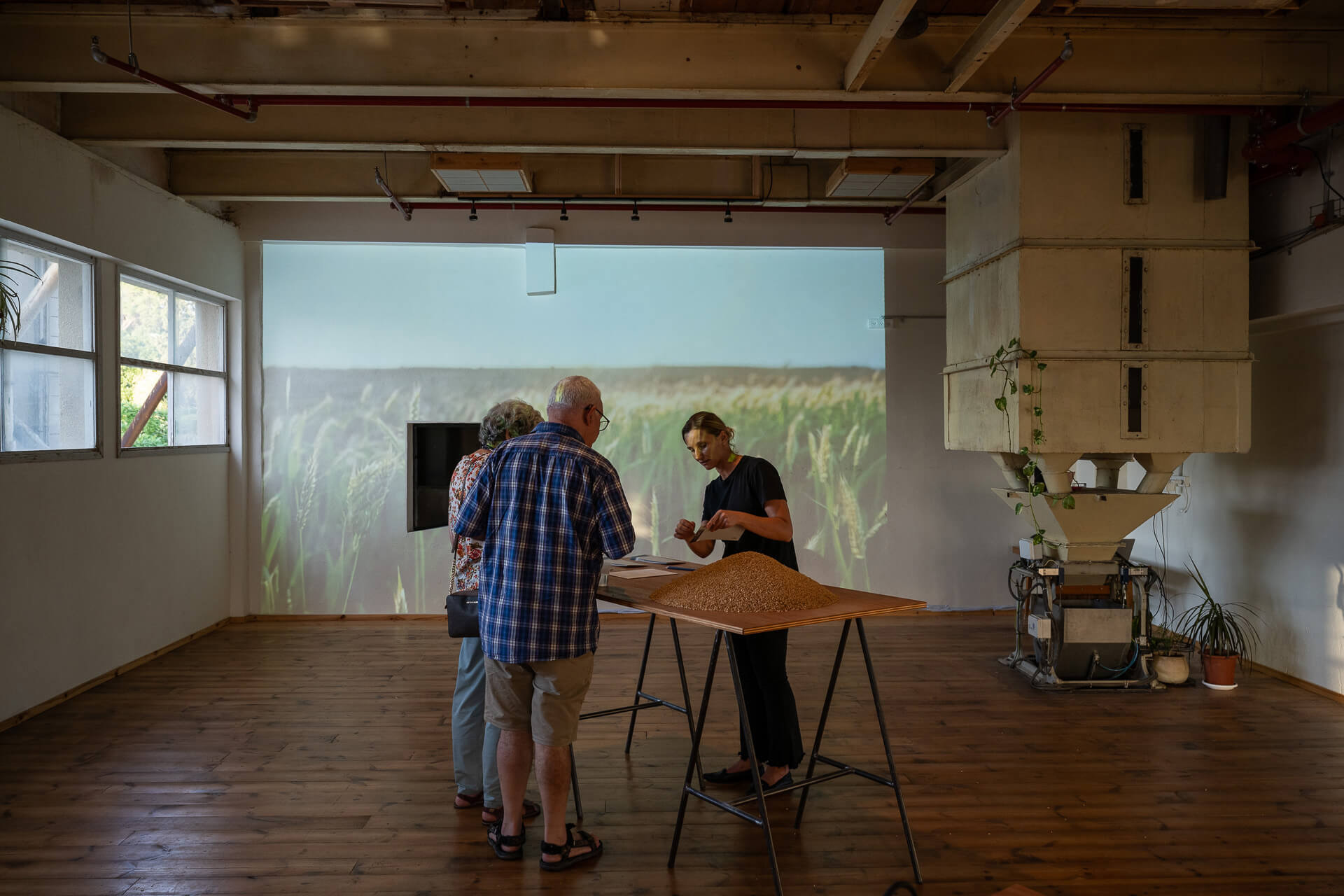
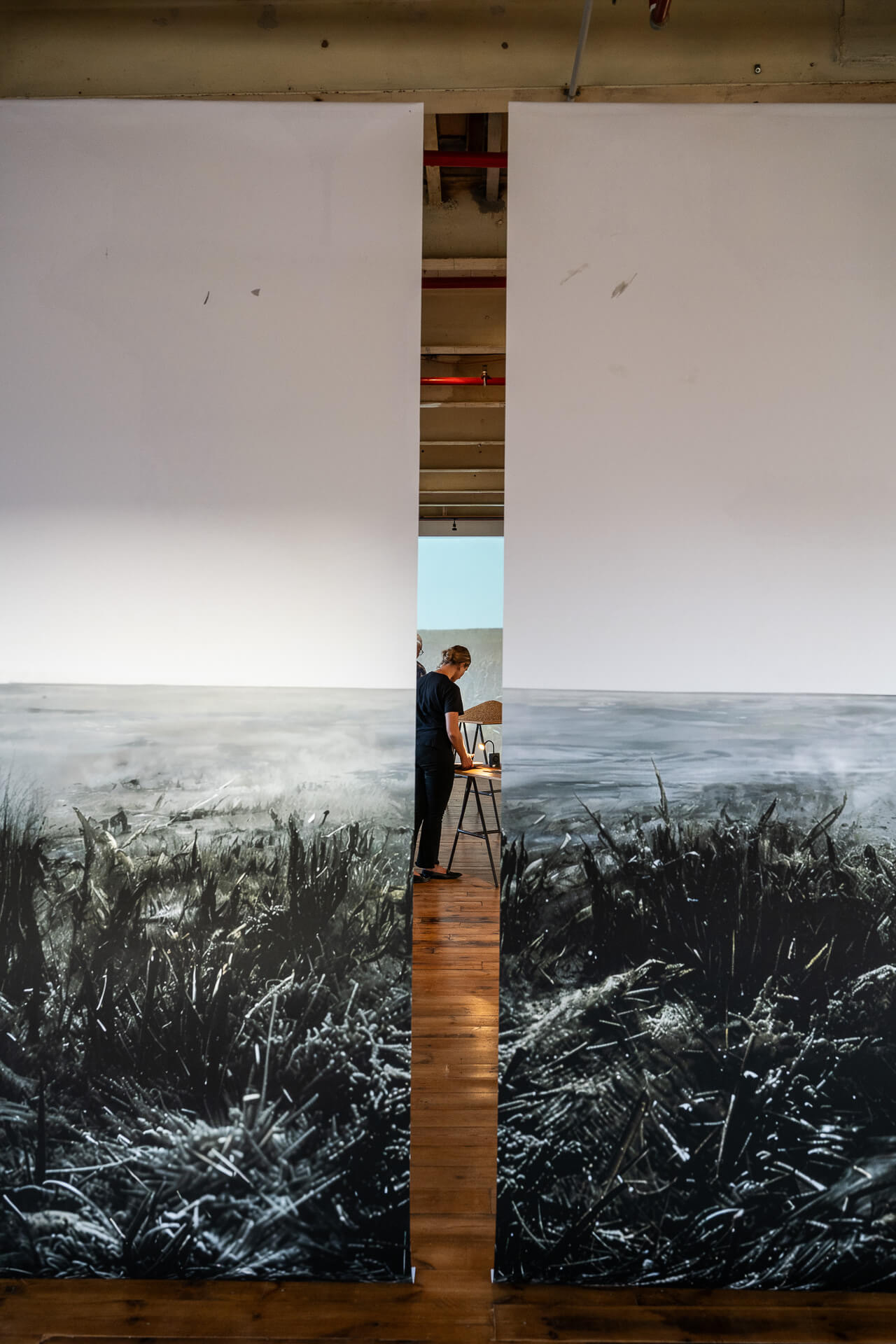
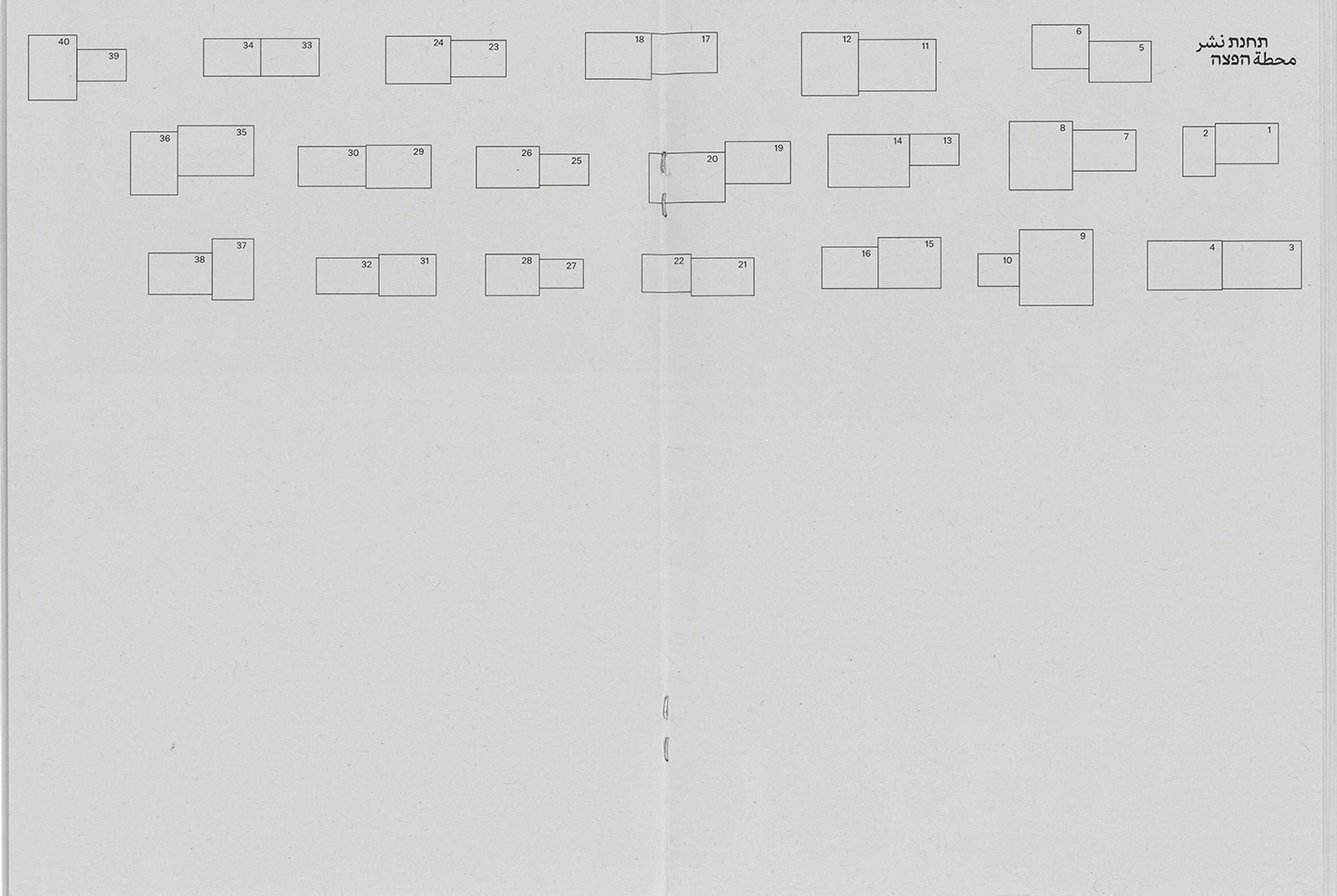
Wheat, a profound symbol of the deep connection between people and their land, plays a vital role in the identities of both the Israelis and Palestinians. The intimacy between the agricultural community, the oats, the field, the landscape, and the soil, is a source of visual, literary, and practical expressions for the renewal and continuity of each of the two communities on the land of strife between them.
Amid the widespread destruction caused by the current conflict in the Middle East, wheat fields—nurtured by communities on both the Israeli and Palestinian sides—have been ravaged by fire, trampled underfoot, or abandoned entirely. In this way, wheat, typically a symbol of growth and resilience, also comes to represent enmity, disaster, and failure, embodied in the scorched remnants of once-flourishing fields.
“Distribution Station” is a design installation that invites participants to respond in real-time to the human disaster and environmental destruction caused by the conflict. Housed in a former flour mill—a space once devoted to the collection and grinding of wheat—the Distribution Station fosters a contemplative practice of empathy and shared responsibility by focusing on wheat to disclose a common denominator between Israelis and Palestinians and by confronting participants with a dilemma of choice. Between the burnt wheat, a cross-border expression of the destruction and suffering of communities in the war, and the growing wheat, a symbol of the prosperity of peoples on their land - stand the participants with the opportunity to send a grain of wheat as a blessing for regeneration and growth. But to whom?
Burnt wheat field imagery: A visual representation of the present reality of destruction.
Pairs of archival photos of harvesters: evidence to close imagination of Israeli and Palestinian identities through wheat work iconography and visual narratives.
A pile of wheat seeds: to choose a seed or two and collect them.
Postcard delivery station: Two destinations—Khan Yunis and Kibbutz Nirim—located just 2.5 kilometers apart across the Israel-Gaza border, were selected. Both communities have cultivated wheat and endured profound destruction. Participants can choose to send a postcard to one or both destinations, inserting a wheat seed within the postcard as a gesture of flourishing. Alternatively, they may send it to a place of their choosing.
Interactive wheat field: As participants deposit their postcards, an AI-generated image of a burnt wheat field regenerates in real time, reflecting their collective contributions.
Shipment of postcards: An aftermath attempt to send postcards to their intended destinations.
Initially launched in Kibbutz Sha’ar Ha’amakim (September 2024), “Distribution Station” aspires to evolve and travel to other multinational localities, fostering dialogue, empathy, and hope between Israelis and Palestinians as well as amid other communities divided by conflict but united by the land they share.
Common Habitat
الموئل المشتركA design-based ecology and co-existence educational workshop (As part of PADLab Shenkar)
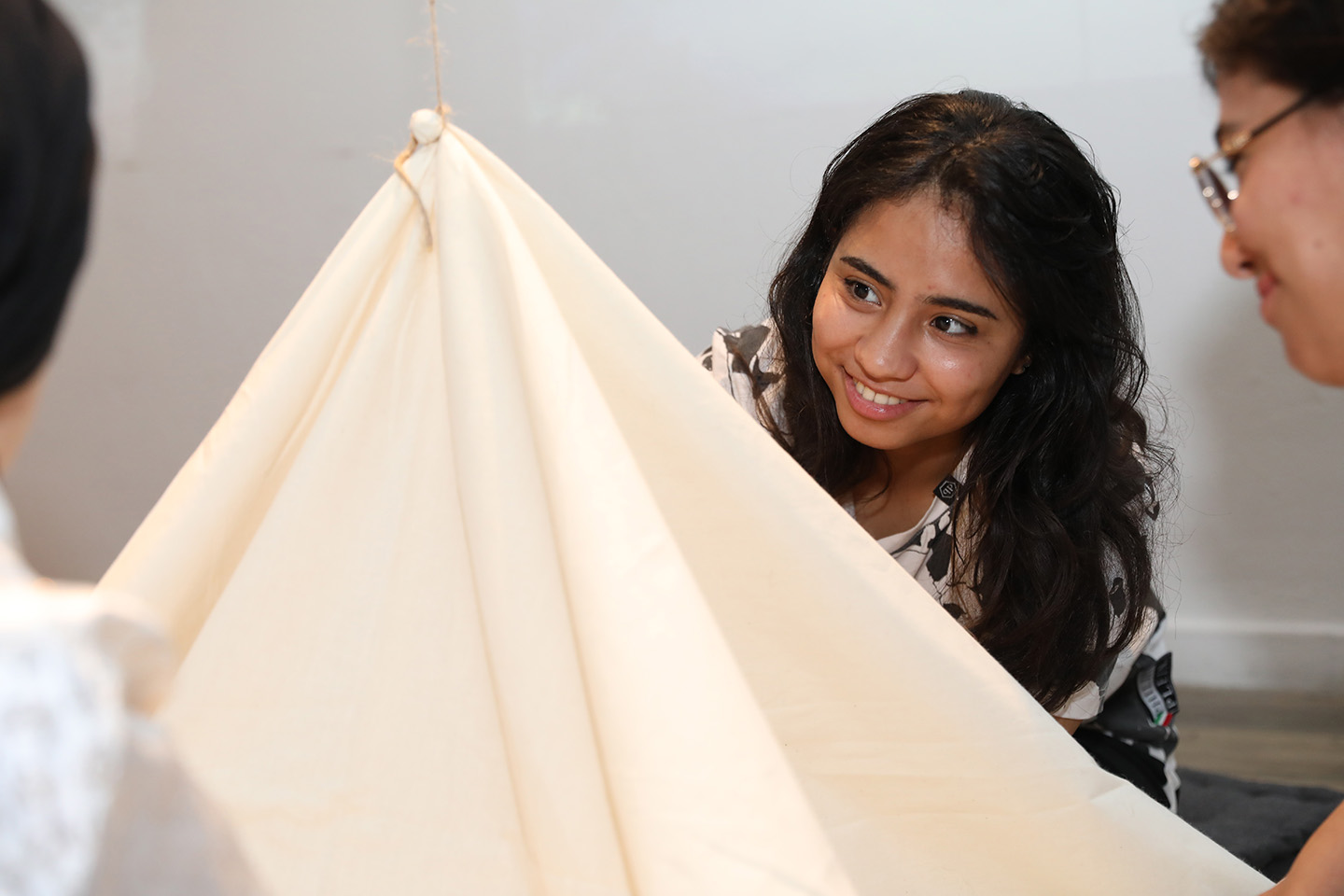
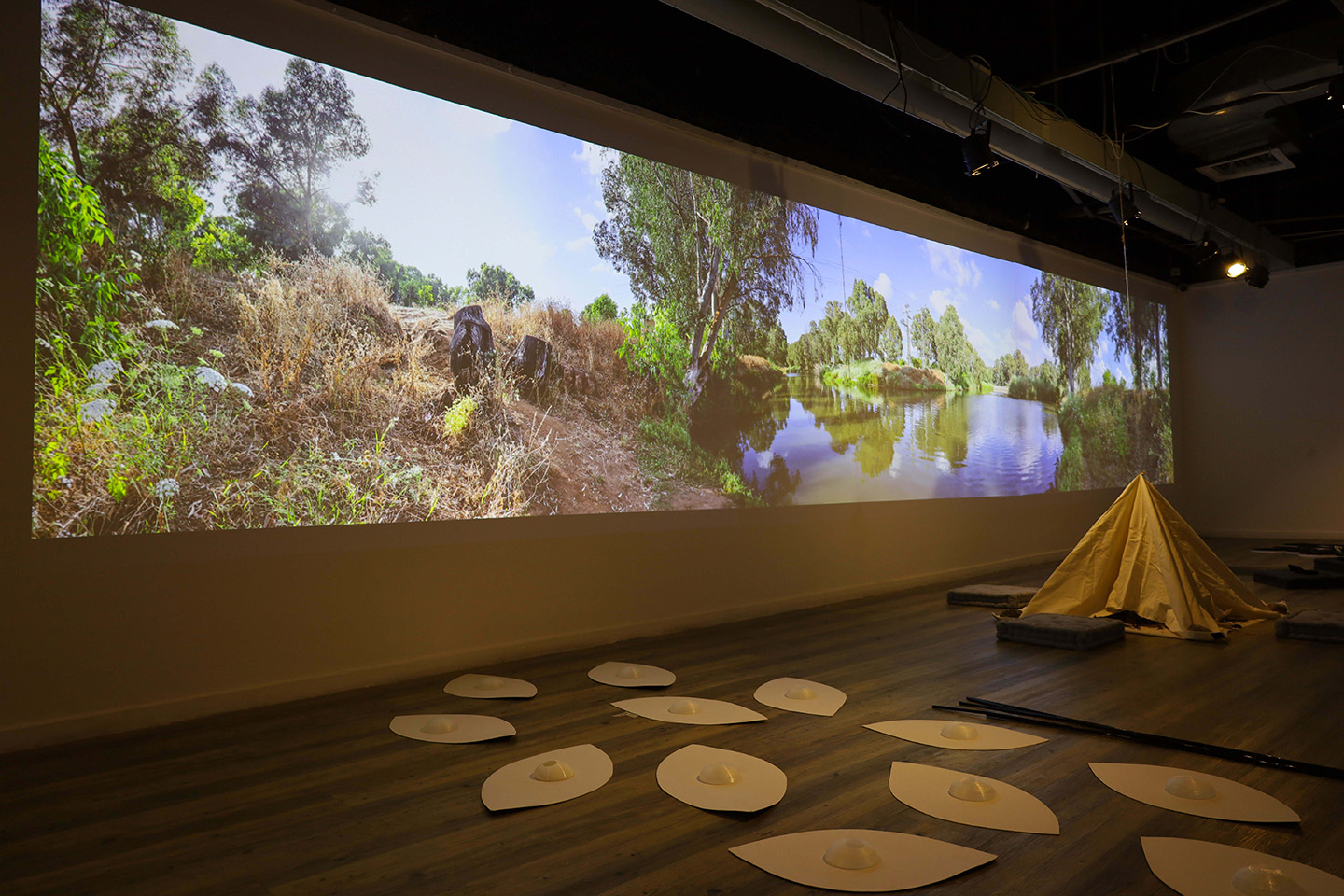
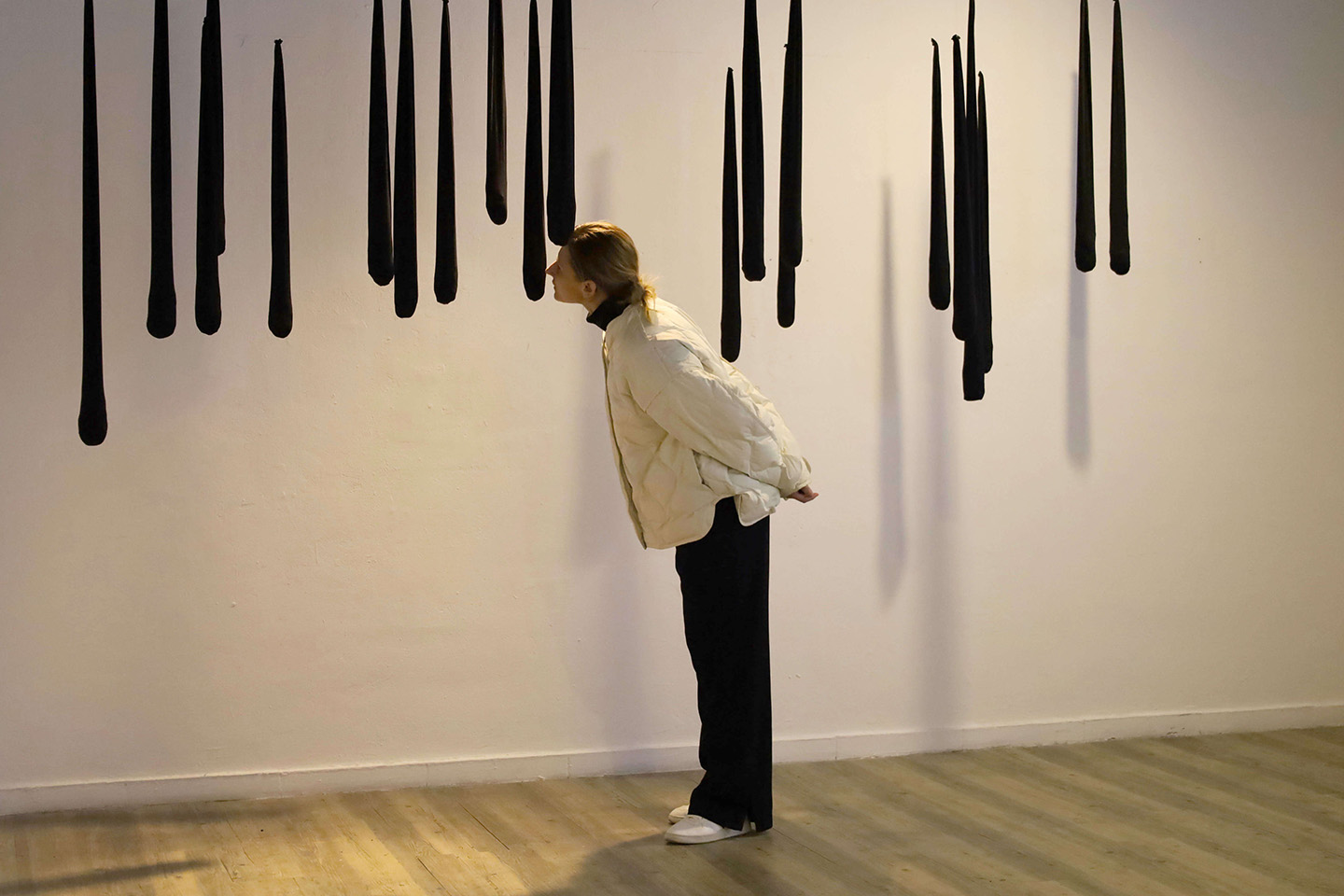
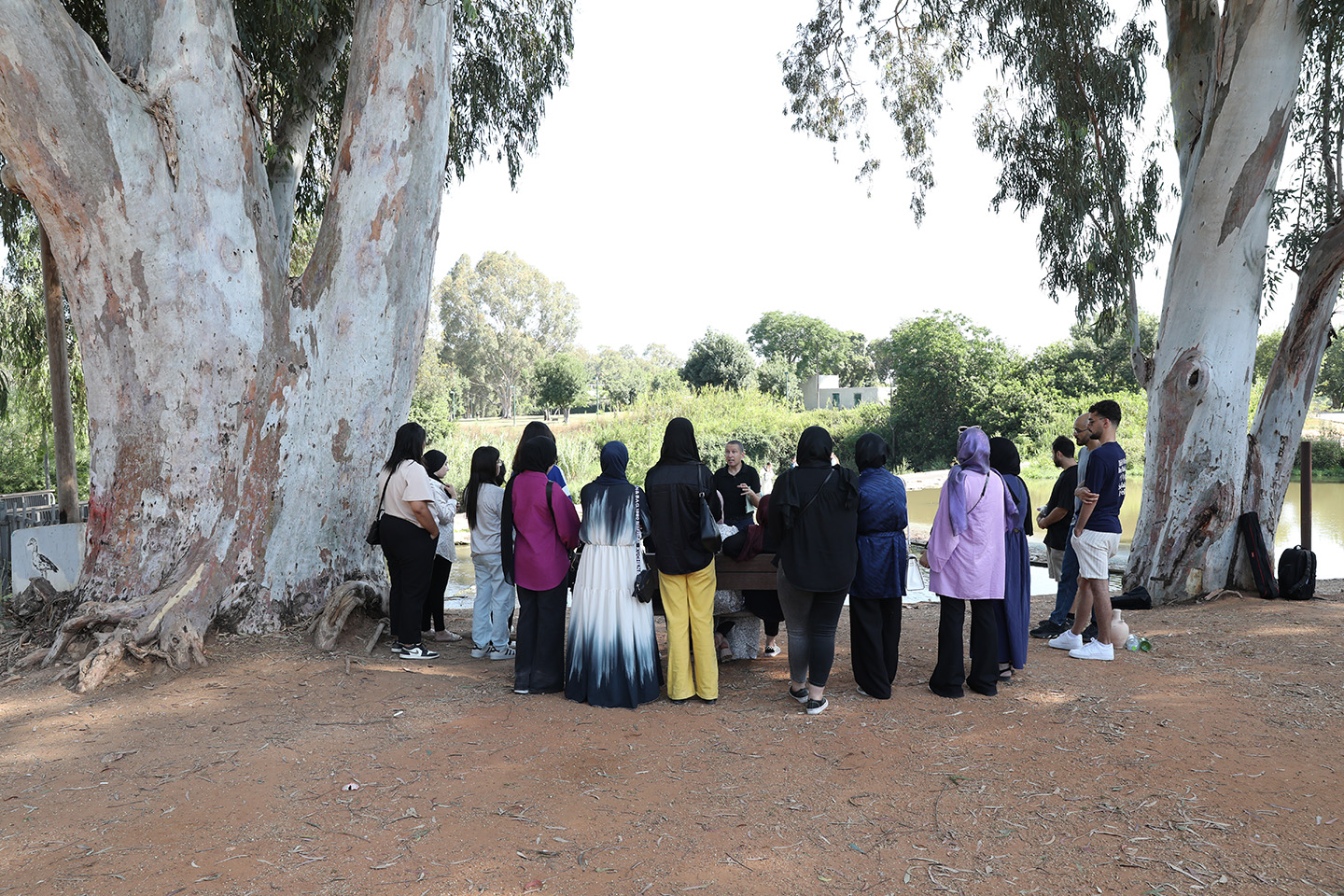
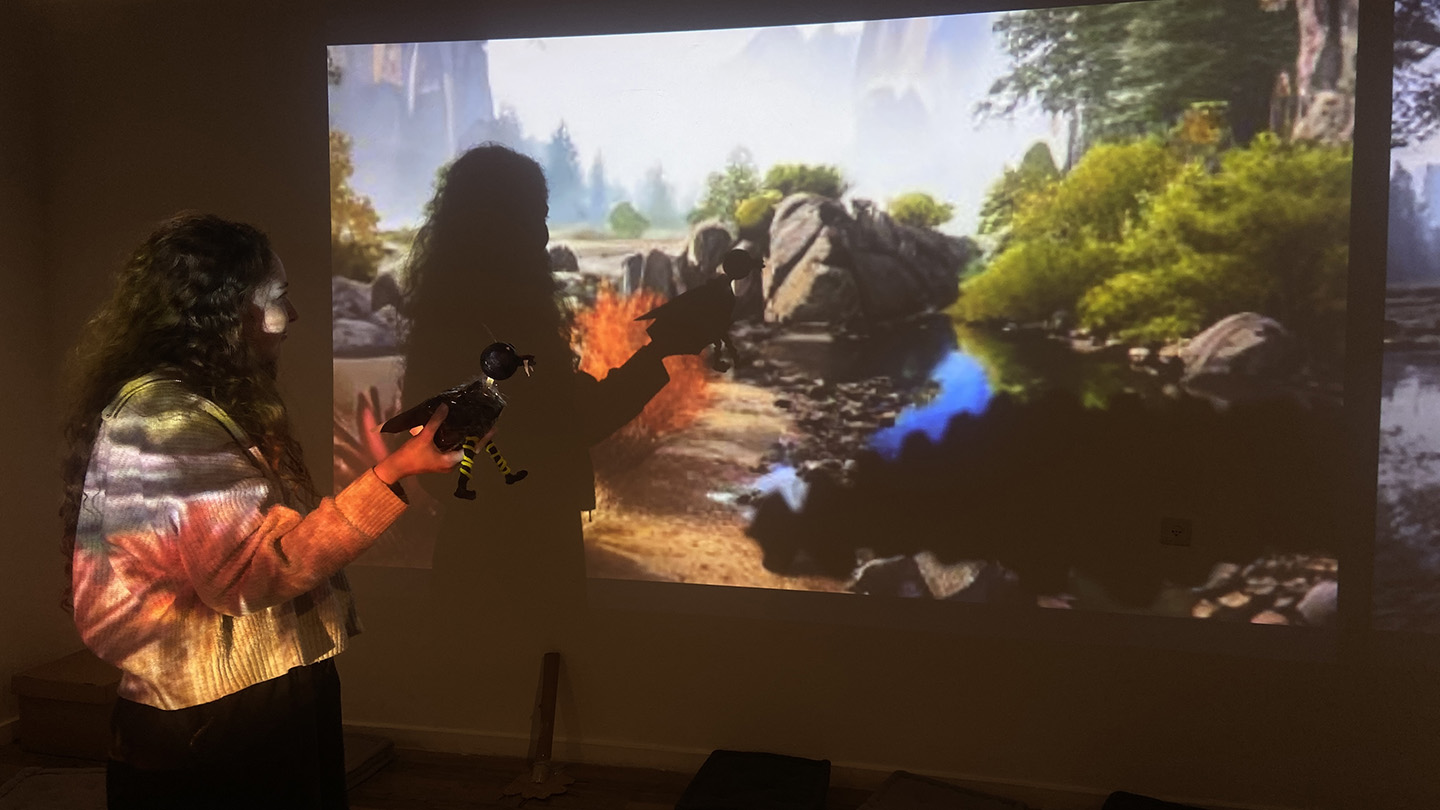
Already hosting more than 150 young Arabs and Jews, the ongoing “Common Habitat” installation, game and workshop, allows participants to immerse themselves in the identities of non-human species native to a local habitat, collaborating to respond to potential climate scenarios through creative and design-based approaches. This three-hour experience fosters deeper local understanding and cooperation between contested communities, creating a safe space for participants to navigate real-world differences and sensitive conflicts by assuming the perspectives of others.
Through design-led, experimental art practices, participants explore and speculate on the evolution of non-human species in a local context as they adapt to environmental changes. The workshop reduces the reliance on language communication by focusing on sensory and intuitive interactions, helping to bridge linguistic and cultural divides.
Participants engage in a mix of outdoor activities and indoor sessions within an immersive, interactive space featuring AI-responsive design, visual and sound installations, projection mapping, simulation games, and more. Their co-creation journey follows these key stages:
1. Observation – A “last glance” from a human-centered perspective across the local habitat.
2. Repositioning – Decentering the human perspective and adopting a non-human viewpoint, for instance, by simulating how other species sense their environment.
3. Experimentation – Exploring the habitat as it undergoes gradual changes due to local climate impacts.
4. Inter-species Communication – Developing relationships and communicating across species as they respond to the evolving habitat.
5. Performance and Reflection – Presenting and discussing the outcomes of explorations and experiments.
An ongoing “Common Habitat program,” relating to the Yarkon River, has been Led by a Jewish-Arab PADLab team in cooperation with Ajeec- the Arab-Jewish Center for Empowerment, Equality, and Cooperation, since mid-2024. "Common Habitat" actively seeks to expand and adapt to other communities and locations, creating more opportunities for shared learning and engagement in diverse environments. “Common Habitat” is created and operated as a part of PADLab (Post Anthropocentric Design Laboratory at Shenkar)